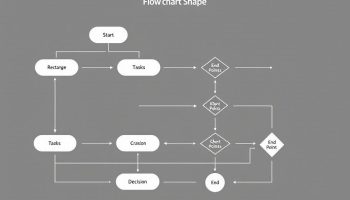
Understanding Ecommerce Analytics Platforms
An ecommerce analytics platform collects, organizes, and displays key metrics across your online store operations. These tools convert raw customer interactions, sales figures, and marketing results into clear insights that help you make smart decisions for your digital business.
Business Impact of Ecommerce Analytics
Ecommerce analytics platforms are essential for businesses aiming to grow in today’s competitive digital marketplace. They offer real-time data analysis, AI-powered forecasting, and cross-channel tracking to help you optimize your marketing budget, improve customer experiences, and boost sales. Companies using advanced ecommerce analytics platforms gain significant advantages through data-driven inventory control, custom dashboards for different team members, and privacy-friendly tracking methods that deliver personalization while staying compliant with regulations.
Your online store generates valuable data with every visitor interaction. An ecommerce analytics platform turns this information into practical insights about customer behavior, product performance, and marketing effectiveness. This visibility allows you to spot trends, identify opportunities, and address issues before they impact your bottom line.
The right ecommerce analytics platform doesn’t just show what happened yesterday—it helps predict what will happen tomorrow. These tools enable you to test different approaches, segment your audience, and create targeted campaigns that resonate with specific customer groups.
For growing businesses, an ecommerce analytics platform provides the foundation for scaling operations while maintaining profitability. You’ll track customer lifetime value, conversion rates, and acquisition costs to ensure your growth strategy remains sustainable and profitable.
Businesses that leverage data-driven decisions witness a 5-6% increase in productivity and profitability.
7 Essential Features of an Ecommerce Analytics Platform: Unlock Data-Driven Success Today
In the rapidly evolving landscape of online retail, leveraging an ecommerce analytics platform is crucial for staying competitive. This section highlights the seven essential features that every robust platform should offer to enhance your decision-making processes and optimize your operations. From
real-time data analysis that enables instant actions to AI-powered predictive insights that forecast customer behavior, these features are designed to help you navigate the complexities of ecommerce effectively. Moreover, understanding customer journeys through cross-channel attribution, along with the ability to customize dashboards tailored to different stakeholder needs, can significantly elevate your overall strategy.
As privacy concerns grow, it’s also vital to prioritize compliant data collection methods that maintain customer trust. Finally, mastering inventory management through actionable insights can not only streamline your operations but also drive profitability. Read on to uncover how these features can transform your ecommerce success.
1. Real-Time Decision Making Capabilities
Today’s ecommerce analytics platforms offer powerful real-time data processing capabilities that transform how you make business decisions. With platforms like Google Analytics 4 and Adobe Analytics, you can access instant insights on customer behavior as it happens on your online store. These ecommerce analytics platform solutions eliminate the waiting period traditionally associated with data analysis.
Real-time alerts can help you identify and capitalize on sudden traffic spikes or conversion opportunities before they disappear. For example, when a product starts trending, you can immediately adjust your inventory management or promotional strategy to maximize sales potential. This rapid response capability provides a significant competitive advantage in the fast-paced ecommerce environment.
The ability to monitor key metrics like conversion rates, cart abandonment, and average order value in real-time allows you to make data-driven adjustments to your website, pricing, or marketing campaigns without delay. This instant feedback loop helps optimize your ecommerce operations continuously rather than waiting for monthly reports.
2. AI-Powered Predictive Analytics
Today’s ecommerce analytics platforms leverage artificial intelligence to transform historical data into actionable future insights. These predictive capabilities allow you to anticipate customer behavior and market trends before they fully materialize.
Using an advanced ecommerce analytics platform with AI integration enables you to forecast inventory needs with remarkable accuracy. This predictive power helps prevent costly stockouts that frustrate customers or overstock situations that tie up capital unnecessarily. Platforms like Daasity and Glew.io have pioneered AI-driven customer lifetime value (CLV) predictions that let you optimize marketing spend by focusing on high-potential customer segments.
Many predictive analytics tools can now:
- Identify which products will likely experience demand spikes
- Forecast seasonal purchasing patterns
- Recommend optimal pricing strategies based on competitive data
- Predict which customers are at risk of churning
By implementing predictive analytics solutions within your ecommerce ecosystem, you gain a significant competitive advantage through more informed decision-making and resource allocation.
Expert Insight: Leverage AI-powered predictive analytics to enhance your ecommerce strategy by accurately forecasting inventory needs and customer behaviors. Implementing these solutions helps prevent stockouts, optimize marketing spend, and identify demand spikes. Tools like Daasity and Glew.io can significantly improve your decision-making and resource allocation, giving you a competitive edge.
3. Cross-Channel Attribution Modeling
Today’s ecommerce analytics platforms can track customer journeys across multiple touchpoints (social, email, web, in-store). When you implement advanced attribution models, you gain clarity on which marketing channels deliver the highest ROI for your online store. GA4’s enhanced attribution capabilities help eliminate the data silos that previously challenged multichannel retailers trying to understand their customers’ paths to purchase.
With proper cross-channel attribution, you can:
- Identify which marketing touchpoints drive initial discovery versus final conversions
- Allocate your marketing budget more effectively based on actual performance data
- Understand the true customer journey rather than focusing on last-click attribution only
- Measure the impact of database analytics across different platforms
Modern ecommerce analytics tools now offer sophisticated attribution models including position-based, time-decay, and data-driven options. These models provide a more accurate picture of how different channels contribute to your sales funnel. By analyzing this data, you can make more informed decisions about strategic planning for your marketing campaigns and optimize your cross-channel performance.
Expert Insight: Implementing cross-channel attribution modeling allows you to pinpoint which marketing channels drive both awareness and conversions. By leveraging advanced models in platforms like GA4, you can allocate your budget more effectively and gain a comprehensive understanding of the customer journey, enabling smarter, data-driven strategic planning for your campaigns.
4. Customizable Dashboards for Different Stakeholder Needs
A robust ecommerce analytics platform should accommodate various team perspectives through tailored dashboards. Your marketing team needs conversion metrics while finance requires profit margin analysis—each department benefits from customized views that highlight relevant KPIs.
Modern platforms like Matomo enable you to create flexible dashboards without technical expertise, letting you drag and drop widgets for instant visualization of crucial metrics. This customization ensures that decision-makers across your organization can quickly access the specific data they need.
Enterprise-level solutions integrate with advanced tools like Tableau, enabling more sophisticated data storytelling for complex business questions. You can satisfy diverse stakeholder requirements by creating role-specific dashboards that deliver precisely what each team member needs to perform effectively.
For multi-brand retailers, these customizable views prove invaluable when comparing performance across different product categories or market segments simultaneously, removing the need for multiple reporting systems.
Expert Insight: Utilize customizable dashboards to meet the unique needs of different stakeholders, ensuring each team can easily access relevant KPIs. Modern analytics platforms allow for effortless personalization, enhancing decision-making efficiency. By tailoring views, particularly for multi-brand retailers, you streamline performance comparisons and eliminate the complexity of multiple reporting systems.
5. Privacy-Compliant Data Collection Methods
As privacy regulations strengthen globally, your ecommerce analytics platform must adapt to new data collection requirements. Modern solutions now prioritize cookieless tracking alternatives that respect user privacy while still delivering valuable insights. Server-side tracking technology, offered by platforms like Segment, helps maintain your data accuracy despite increasing browser restrictions and ad blockers.
When implementing an ecommerce analytics platform, consider solutions that offer first-party data collection methods. These approaches allow you to gather customer behavior information without relying on third-party cookies that face elimination across browsers.
Self-hosted analytics options like Matomo provide complete data ownership and built-in GDPR compliance features, giving you greater control over risk tolerance regarding customer data. This approach helps protect your business from potential privacy violations while still enabling personalized experiences.
Key privacy-compliant features to look for include:
- Consent management integration
- Data anonymization options
- Flexible retention policies
- Transparent data collection documentation
- Server-side tracking capabilities
Expert Insight: To ensure privacy-compliant data collection for your ecommerce analytics, prioritize first-party data methods and invest in solutions that support server-side tracking. Look for features like consent management, data anonymization, and flexible retention policies to maintain data accuracy while protecting customer privacy and minimizing legal risks.
6. Cohort Analysis for Customer Retention Strategies
Your ecommerce analytics platform can revolutionize how you understand and improve customer loyalty through cohort analysis. This powerful segmentation technique groups customers based on shared characteristics or behaviors over time. By analyzing these cohorts, you can identify which customer segments demonstrate the highest retention rates and lifetime value.
Modern ecommerce analytics platforms now offer sophisticated cohort visualization tools that make it easy to spot trends and patterns. You can quickly determine if customers acquired during specific campaigns or seasons tend to be more loyal than others. For example, you might discover that holiday shoppers rarely return, while those who purchase during your spring promotion become long-term customers.
Tools like Glew.io and Daasity have specialized features for subscription-based businesses, helping you:
- Track renewal rates across different cohorts
- Identify at-risk subscribers before they cancel
- Measure the impact of retention campaigns
- Compare performance across acquisition channels
These insights allow you to implement targeted retention strategies for each segment rather than using a one-size-fits-all approach. You can allocate marketing resources more effectively by focusing on high-potential customer groups identified through your analytics platform’s cohort analysis capabilities.
7. Actionable Inventory and Pricing Intelligence
Your ecommerce analytics platform should deliver actionable inventory and pricing intelligence that directly impacts your bottom line. Modern analytics tools provide comprehensive inventory performance metrics that connect stock levels with profitability indicators. By implementing an advanced ecommerce analytics platform, you can access dynamic pricing recommendations based on competitive analysis and real-time demand forecasting.
Platforms like Daasity help you identify profitable product bundling opportunities by analyzing customer purchase patterns and product affinities. These insights enable you to create strategic inventory groupings that increase average order value while reducing holding costs.
You can leverage these analytics to:
- Optimize reorder points based on seasonal demand fluctuations
- Identify slow-moving inventory before it becomes a financial burden
- Implement price elasticity testing to maximize revenue
When planning your inventory strategy, use your analytics platform to detect emerging trends before your competition. This approach to data-driven inventory management transforms traditional stock keeping from a cost center into a strategic profit driver for your business.
Ecommerce Analytics Platforms
Ecommerce analytics platforms serve as comprehensive data management systems that transform raw customer interactions into actionable business intelligence through seven key growth-driving capabilities. These advanced platforms combine real-time decision-making, AI-powered predictions, cross-channel attribution, customizable dashboards, privacy-compliant tracking, cohort analysis, and inventory intelligence to deliver a complete view of your online business performance.
Importance of Ecommerce Analytics Platforms
Ecommerce analytics platforms have become essential for enterprise users navigating today’s complex digital marketplace, where data-driven decisions directly impact competitive advantage and profitability. Business leaders rely on these sophisticated platforms to:
- Break down departmental silos
- Optimize marketing spend
- Anticipate customer behavior
- Ensure regulatory compliance
- Drive sustainable growth through a unified, evidence-based approach to commerce strategy
By leveraging the comprehensive capabilities of these analytics platforms, organizations can significantly enhance their operational efficiency and strategic positioning in the market.






